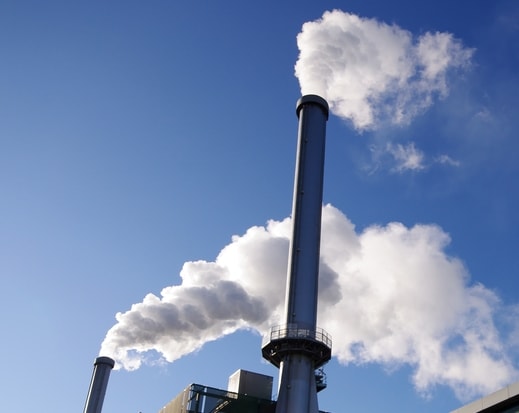Defra has put a halt to plans to phase out a rule allowing hazardous waste materials from energy from waste plants to be disposed of in landfill, due to ‘limited availability’ of alternative outlets for the material.
Waste management companies have been allowed to send Air Pollution Control (APC) residues – material left over after the removal of hazardous pollutants from the energy from waste process – to hazardous waste landfill sites, under a derogation of hazardous waste rules.

APC residues originate from the cleaning of flue gases at energy from waste plants and are classed as hazardous waste
The material can be accepted at some landfill sites even where it is up to three times above Landfill Directive waste acceptance criteria (3xWAC) on limits for the content of chemicals such as lead and chlorine.
The derogation allowing the landfilling of the material had been under review for a number of years, with the government having originally promised to remove the arrangement in its 2010 Hazardous Waste Strategy.
The measure was seen as a short term option to allow alternative treatment methods for the material to be developed.
As recently as spring 2016, it had largely been expected that an announcement on the timetable for the phasing out of the derogation was due (see letsrecycle.com story).
What is Air Pollution Control residue?APC residue is typically a mixture of ash, carbon and lime. It is a hazardous waste which is currently disposed of at a hazardous waste landfill or undergoes further processing such as washing or stabilisation to send to a non-hazardous landfill. (Source: WRAP) |
However, yesterday (7 February) in a bulletin sent out to stakeholders, Defra has confirmed that ministers have taken the decision not to remove the derogation, following work to establish ‘an informed picture’ of the capacity and costs involved with the treatment of the material.
Certainty over the availability, cost and environmental benefit of the available treatment facilities is not strong enough to support removing the 3xWAC derogation, stakeholders have been told.
‘Disappointment’
The move has been criticised by the Environmental Services Association (ESA), which has lobbied in favour of the removal of the 3xWAC derogation, and has a number of members which have invested in alternative treatment processes for APC residues.

APC residue is typically a mixture of ash, carbon and lime. It is a hazardous waste which is typically disposed of at a hazardous waste landfill site
Commenting on the decision, Jacob Hayler, the Association’s chief executive, said: “ESA is disappointed that Defra Ministers have decided against withdrawing the 3xWAC derogation which currently allows APCr to be disposed of to hazardous waste landfill.”
He added: “While it is useful finally to have some clarity after this lengthy period, it is disappointing that Ministers have decided not to phase it out after all.
“This decision won’t help investment in alternative treatment technologies for APCR which would deal with the waste further up the waste hierarchy, and potentially brings into question the government’s commitment to the waste hierarchy more generally.”
Treatment
Among those to have invested in alternative treatment processes for APCr are Castle Environmental as well as Carbon8, with involvement from Grundon, which have developed ‘recycling’ processes for the residues which largely sees them used as a replacement for aggregates in concrete for construction processes.
Roger Hewitt, director at Castle Environmental which treats APC residues at a sites in Cardiff, where it creates an aggregate feedstock that is then used in concrete products, outlined his disappointment in the decision, but said his company would continue to invest in treatment processes for the material.
He said: “The fundamental principle was to move away from landfill and progress up the waste hierarchy to more sustainable waste disposal options. This decision is stagnation at best and moving backwards at worst and shows that government at local and national level are merely paying lip service to recycling.

Castle Products’ plant in Cardiff, where it produces dense concrete blocks, some of which are manufactured with material from APCr
“We at Castle Environmental have developed and commercialised alternatives to landfill that are genuine recycling. We manufacture dense concrete blocks – a perfectly first class product. We are doing it at Cardiff and we are looking at another much larger plant.”
He added: “We have invested significantly on the back of government’s undertaking to remove derogation of 3xWAC. This decision won’t stop us investing in progress, but it is disappointing that we are having to do so at a competitive disadvantage to landfill operators.”
Estimates compiled by the government in July 2015 suggested that around 300,000 tonnes of APCr arise in the UK annually, although this is likely to rise significantly in future years as a greater proportion of the UK’s residual waste is treated via EfW facilities. This could rise to as much as 600,000 tonnes by 2020, it is thought.
A significant increase in the volume of material arising in the UK would increase the need for a major alternative to landfill, with the capacity at UK landfill sites continuing to decrease as sites are shut.
The post Defra scraps APC residue rule-change appeared first on letsrecycle.com.
Source: letsrecycle.com Waste Managment


